Absorption Refrigerator vs Gas Refrigerator: Which One Should You Choose?
If you are looking for a portable refrigerator that can run on different power sources, you might be wondering whether to choose an absorption refrigerator or a gas refrigerator. Both types of refrigerators use a heat source to drive the cooling process, but they have some differences in their working principles, advantages, and disadvantages. In this blog post, we will compare and contrast two models of 40L refrigerators, one absorption and one gas, and give you some tips on how to choose the best one for your needs.

How do they work?
The main difference between the two systems is the way the refrigerant is changed from a gas back into a liquid so that the cycle can repeat. An absorption refrigerator changes the gas back into a liquid using a method that needs only heat, and has no moving parts other than the fluids. A gas refrigerator is a type of absorption refrigerator that uses a gas burner as the heat source, but it can also use electricity as an alternative.
An absorption refrigerator uses two coolants, usually ammonia and water, to create a continuous cycle of evaporation and condensation. The ammonia gas is absorbed by the water in an absorber, and then heated by an external source (such as a gas burner, an electric heater, or solar energy) in a generator. The heated ammonia gas separates from the water and passes through a condenser, where it cools down and liquefies. The liquid ammonia then flows through an expansion valve into an evaporator, where it absorbs heat from the inside of the refrigerator and evaporates again. The ammonia gas then returns to the absorber, where it is reabsorbed by the water, and the cycle repeats.
A gas refrigerator works on the same principle as an absorption refrigerator, but it uses propane or natural gas as the main heat source. The gas is burned in a burner at the bottom of the refrigerator, which heats up the ammonia-water solution in the generator. The rest of the cycle is similar to that of an absorption refrigerator. However, a gas refrigerator can also use electricity as a backup or alternative heat source, either from AC or DC power. This gives it more flexibility and convenience in different situations.
What are their features?
Let's take a look at two examples of 40L refrigerators, one absorption and one gas, and see what features they offer.
 |
 |
|
• 2 power options: AC 220V-240V and DC 12V • Temperature range: 0℃-10℃ • 0dB,Silent cooling system • No Freon, Environmentally friendly • Reversible door hinge, open on the left or right side • 40L: Great for medium-sized homes or outdoor trips that require more space, such as camping or long road trips |
• 3 Energy Sources: 220-240V AC, 12V DC, or GAS • Temperature Range: 0℃ - 10°C • 0dB, runs completely silently • Reversible Door Hinges & Interior LED Light • Durable and long-lasting • 40L: Compact and space-saving, perfect for singles, couples, or small families |
How to choose the best one for you?
As you can see, both types of refrigerators have their own strengths and weaknesses, and the best one for you depends on your personal preferences and needs. Here are some questions to ask yourself before making a decision:
- How much space do you have? If you have limited space, a compact gas refrigerator might be a better option than a larger absorption refrigerator.
- How often do you travel? If you travel frequently, especially to remote or off-grid locations, a gas refrigerator might be more convenient and reliable than an absorption refrigerator that relies on AC or DC power.
- How much power do you have? If you have access to reliable and affordable electricity, an absorption refrigerator might be more economical and efficient than a gas refrigerator that consumes gas or battery power.
- How much noise can you tolerate? If you are sensitive to noise, both types of refrigerators are suitable for you, as they run silently without any vibration or compressor noise.
- How much food do you need to store? If you need to store a lot of food, especially frozen food, neither type of refrigerator might be ideal for you, as they have weak cooling capacity and small temperature range. You might want to consider a compressor refrigerator that can chill to lower temperatures and double as a freezer.
Conclusion
Absorption refrigerators and gas refrigerators are both portable and versatile refrigerators that use a heat source to drive the cooling process. They have some similarities and differences in their working principles, features, advantages, and disadvantages. The best one for you depends on your personal preferences and needs. We hope this blog post has helped you understand the differences between the two types of refrigerators, and given you some tips on how to choose the best one for you. Happy shopping!





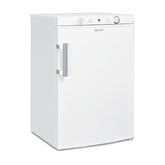
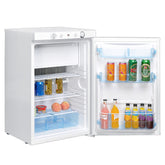
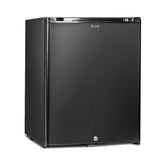
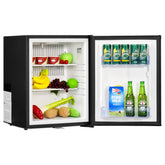
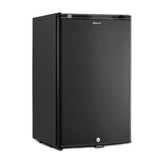
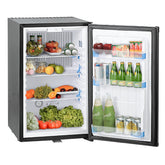

Leave a comment
Please note, comments need to be approved before they are published.